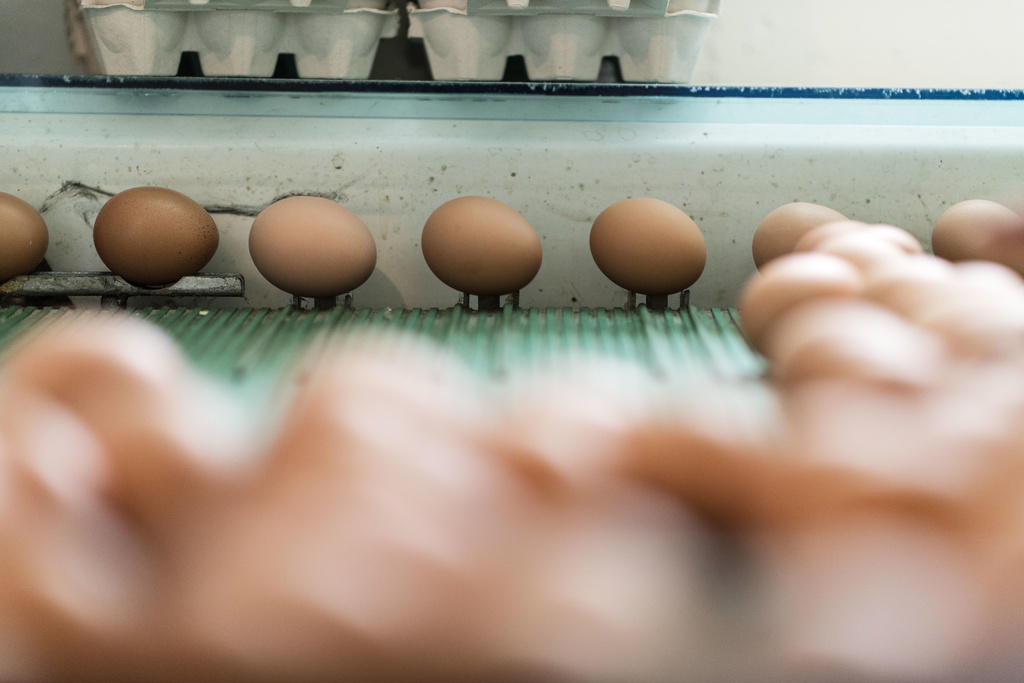
Fewer Swiss farms and dairy cows, more egg-layers and goats

Last year 768 farmers in Switzerland called it quits, while others increased their livestock numbers and production of organic food.
Figures released this week by the Swiss Federal Statistics OfficeExternal link revealed a 1.5% drop in the number of farms, bringing the total down to 50,852. However, the number of certified organic farms rose by about 400 to 7,032. This brought the share of organic farms up 1.4 percentage points to 15%.
With these changes came updates to the sorts of animals kept on Swiss farms. Compared to 2017, last year saw a 6.2% increase in the number of laying hens to over 3.37 million birds. Of these, 18% were raised organically. There was also a 3.1% increase in the number of goats, bringing their total population to 80,552.
The number of dairy cows fell to 564,200, representing a decline of 10% over the past decade. However, the number of cattle reared for meat went up by 1.7%, as in previous years.
The trend towards ever larger farms also continued in 2018. Compared to the previous year, 1.6% more farms with a usable area of more than 30 hectares were counted. Smaller farms fell by 2.3%, either because of closures or mergers. The average farm size was a good 20 hectares; in 1980, farms were on average only half as large.

More
Egg production keeps on rising

In compliance with the JTI standards
More: SWI swissinfo.ch certified by the Journalism Trust Initiative



























You can find an overview of ongoing debates with our journalists here . Please join us!
If you want to start a conversation about a topic raised in this article or want to report factual errors, email us at english@swissinfo.ch.